For much of his life T.S. Eliot was surrounded by an aura of greatness: people accepted it, and behaved accordingly. That kind of consensus is not helpful for a writer or his works, as Eliot himself clearly saw, observing that nobody had ever written anything significant after winning the Nobel Prize for Literature – true at the time and mostly true since. His work is now in the position of Hamlet when he wrote a famous essay on the play: that the universal agreement of its greatness had hidden an understanding of its failures, its strangeness and what it couldn’t do. We take the greatness of Eliot’s poetry pretty much for granted; but in the centenary of The Waste Land, some cracks are beginning to appear in a once unassailable reputation.
The story that Robert Crawford tells has a willed aspect and one that can’t be controlled: what posterity is going to think. Eliot allowed the dazzling innovation and lyric force of The Waste Land to settle in. As a public intellectual and founding editor of Faber and Faber, he became the greatest impresario of poetry of the century, identifying the best poets of every generation, from W.H. Auden to Ted Hughes. They were often poets very unlike himself, and publishing them says a lot for his intelligent breadth of curiosity.
There is also his private life, which has attracted much attention, as if it told us more about his culture than about him. His first marriage, to Vivienne Haigh-Wood, was a disaster; they should never have gone near each other. Vivienne was a talented writer who was profoundly unstable and we cannot draw any kind of wisdom from what she said or did. When she told an embarrassed party that ‘I loathe men – all men, just loathe them’, it was not out of any special insight but because she was mad. As a character in Kingsley Amis says, madness ‘tells us nothing about what [the mad] do in the rest of their lives, gives no insight into the human condition and has no lesson for sane people except how sane they are… they may make some very odd remarks but that’s because they’re mad’. It is impossible not to feel extremely sorry for them both. Eliot worked hard to protect and support Vivienne, and only when there was no alternative was she removed to a place of safety.
People may feel differently about his long apparent courtship by letter of his first love, Emily Hale, the details of which have only recently emerged. She was a support during the worst Vivienne period, and they appeared to have fallen in love. She expected Eliot to propose eventually; but when Vivienne died, he saw quite suddenly that he could not marry her. She was undoubtedly bitter, but his mistake was only to share intimacies in the first place, and to protract the situation for years.
There is, finally, his second marriage to his much younger secretary, Valerie Fletcher, which was unlikely, but immensely happy on both sides. Enchantingly, he proposed in a handwritten letter which he handed her at her desk, as if it were about royalties to be typed. Valerie devoted the rest of her long life to guarding Tom’s estate with an exemplary sense of responsibility, putting a magnificently authoritative edition of his letters in train.
The final principal aspect of the narrative, which not many people saw coming, is Eliot’s anti-Semitism. In his lifetime, challenges were made to some directly anti-Semitic lines in the poetry (‘The rats are underneath the piles/ The Jew is underneath the lot’) and the essays: ‘Reasons of race and religion combine to make any large number of free-thinking Jews undesirable [in society].’ Private statements that have since emerged are worse still: ‘Why is there something diabolic about so many Jews?’ ‘There are enough Jews in the English universities as it is.’
Many similar statements can be found in other writers, but what puts Eliot on another level was his continuing to make them and, even in the face of the Third Reich, commending an article talking of ‘so-called anti-Semitism’, or expressing a concern about the arrival of refugees: ‘Jews in the mass are antipathetic.’ When one refugee child was adopted by a friend, Eliot was happy to note that ‘it’ was ‘not at all objectionably Jewish to look at’. His was the worst kind of anti-Semitism, being elevated to an idiotic sort of principle. Of the Holocaust he suavely observed: ‘To suggest that the Jewish problem may be simplified because so many will have been killed off is trifling: a few generations of security, and they will be as numerous as ever.’ His own view of this was clear: his writing would only seem ‘anti-Semitic’ to ‘the Semite’.
I don’t see how this horrible accumulation of evidence can do anything but close the long debate. We can accept the mastery of the poetry and the immense good that it and Eliot himself did in the world, but the ugly stain is not going to go away. Wagner, who took care to exclude explicit anti-Semitic statements from his artistic productions, has survived. Eliot, who did not, may in time be downgraded.
This book is a thorough, solid sequel to Crawford’s much-praised Young Eliot. It benefits from the opening up of new material, the publication of letters and a proper edition of both the prose and the full body of poetry. Crawford is more at home in Eliot’s immediate milieu than in the wider world, and brings a rather flat 21st-century view to his subject. You cannot readily conflate Anglo-Catholicism, which was so important to Eliot, with both Tory politics and upper-class society. Many Anglo-Catholics, such as the crook in The Way of All Flesh or the ones Charles Ryder’s cousin Jasper describes as ‘sodomites with unpleasant accents’ in Brideshead Revisited, were neither Tories nor, conspicuously, at all smart. Crawford makes more of Eliot’s encounter with Nancy Cunard than do biographers do, who at most describe it as one-night stand, which it probably was. On the other hand, he takes a justifiably brisk line with those biographers of Vivienne who have pursued unlikely theories, such as Tom being a secretly promiscuous homosexual.
I would have welcomed more treatment of some of the ridiculous stories that accumulated about Eliot in his lifetime, which tell a lot about the way his contemporaries felt about him. You won’t find here Ivy Compton-Burnett’s vignette of sharing a taxi with him and Valerie talking exclusively about ‘the Rent Act, cake shops, fishmongers, greengrocers in the Gloucester Road and where to go for the best fillet steak’. Nor the deathless story of Mrs Dylan Thomas at a party, sticking her elbow into the bowl of ice cream that Eliot was eating, presenting it to him and instructing him to ‘lick it off’. And was there really nothing to say about Henry Reed’s ‘Chard Whitlow’, one of the greatest parodies in the language? What did Eliot think of this dazzling take on Four Quartets? An account of a writer that excludes serious dissent and trivial mockery will inevitably give the impression of nervousness on his subject’s behalf.
Some detailed and impertinent analysis of money would also have been of interest: the individual Four Quartetswere among those implausible ration-book bestsellers. We hear that the 1948 Selected Poems had a print run of 50,000. What did that mean in an era when taxation reached a level of near confiscation? Is it accurate to talk of ‘substantial royalties and post-Nobel wealth’?
One small but irritating fault of the biography is Crawford’s occasional unwillingness to cite proper sources. We are given only a reference in the collected letters to Peter Quennell’s description of Eliot, apparently in the 1920s, as an ‘old-fashioned City gentleman’, rather than any indication of whether it was a contemporary observation or (as I suspect) written much later in one of Quennell’s autobiographies. It’s bad manners, too, to credit a Daily Mail news report for the Queen Mother’s reminiscences of Eliot rather than A.N. Wilson, who broke the omertà of a private party to report them in this magazine. It may seem a petty point, but in a book that aims for authority it’s vital to let the reader know where your evidence comes from.
This biography, however, is going to play a large part in any future assessment of Eliot, and has an overall solid authority. What will happen to that reputation? Will it come down to the power and fresh ability to surprise of ‘Burnt Norton’ and the third part of The Waste Land? Or will the rest of Eliot’s work in time follow the late verse dramas into a miasma, made up of the unrecoverable acclaim of a past age, an unsympathetic fussiness about points of abstruse doctrine and the undeniable bad smell of remarks made in passing? We won’t find out.
Got something to add? Join the discussion and comment below.
Get 10 issues for just $10
Subscribe to The Spectator Australia today for the next 10 magazine issues, plus full online access, for just $10.
You might disagree with half of it, but you’ll enjoy reading all of it. Try your first month for free, then just $2 a week for the remainder of your first year.

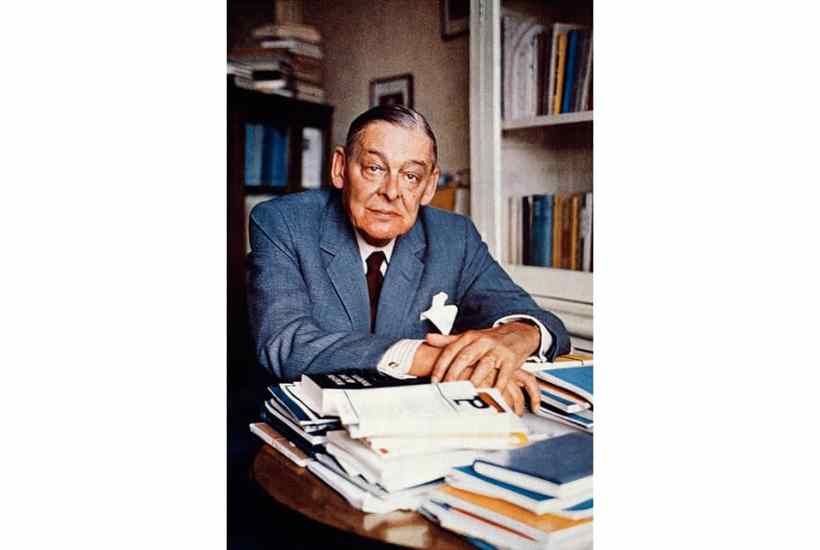

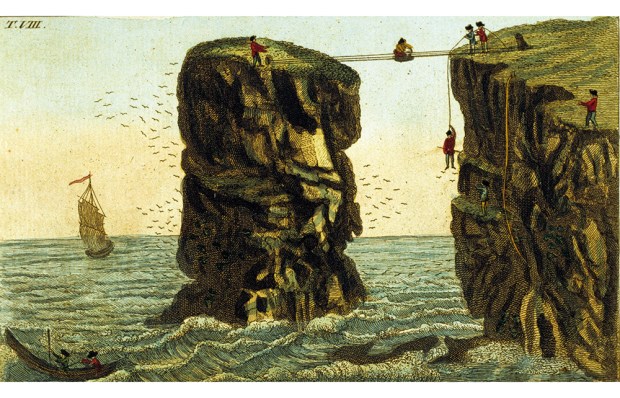
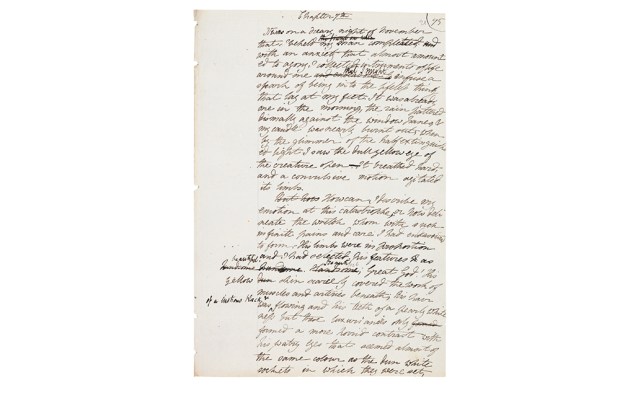
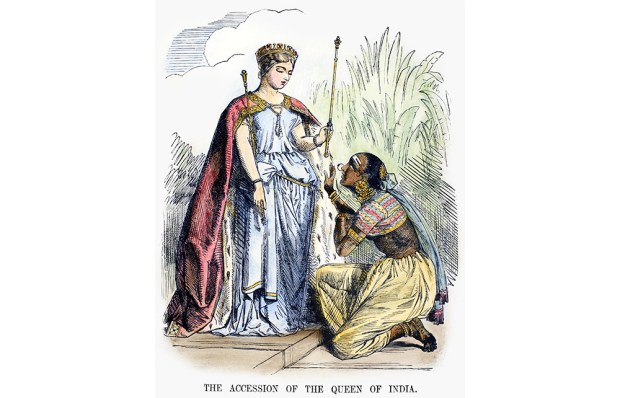
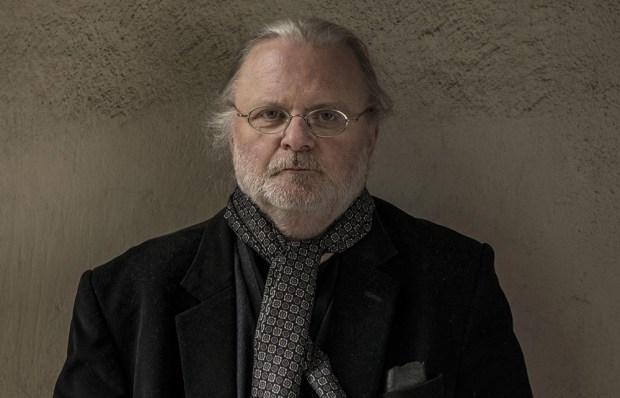
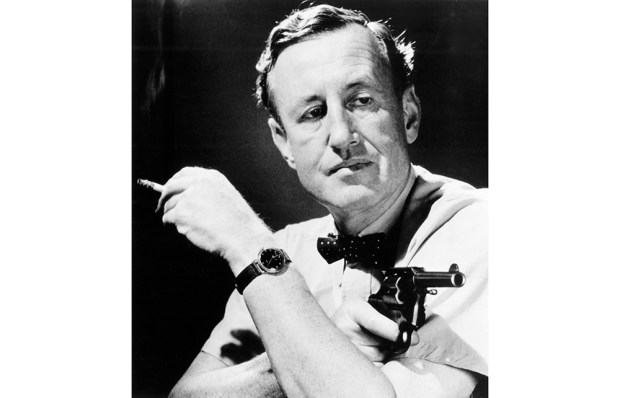






Comments
Don't miss out
Join the conversation with other Spectator Australia readers. Subscribe to leave a comment.
SUBSCRIBEAlready a subscriber? Log in